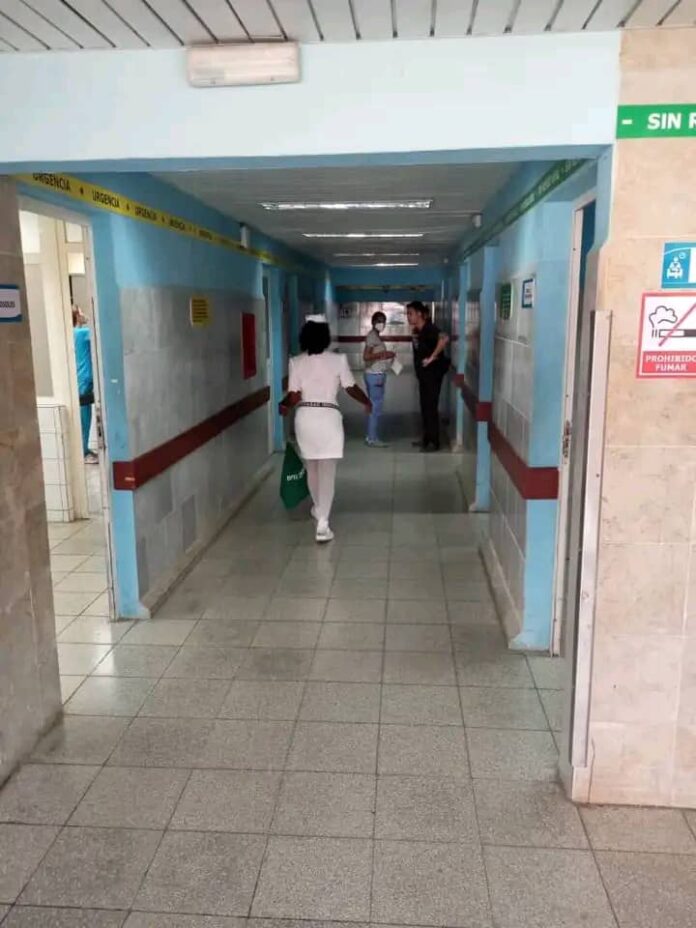
By Kamil Kenders
HAVANA TIMES – A week ago, a friend’s father passed away. He was a young man (66 years old) but had many illnesses: diabetes, hypertension, and on top of that, he smoked like a chimney. No one could make him understand that, with his conditions, he couldn’t smoke. He had been an alcoholic, but after having two toes amputated, the scare made him realize that diabetes and alcohol don’t mix, so he finally stopped drinking.
He lived with his wife, a woman 15 years older than him, but even so, they had a daughter, who is now 42 years old, my friend. The father-daughter relationship was never good; the truth is, he was never a good father, and that, along with the arguments with her mother, almost always due to alcohol, marked her childhood and her life in general. My friend is a strong woman today, but with very low self-esteem.
Two years ago, my friend’s mother had to go live with another of her daughters because she is also a sick woman, so he was left alone for some time. Finally, one day, this man went to live with his daughter, my friend, and their lives changed completely. Since the relationship between them had never been good, it didn’t improve now either.
There were many months of fights, misunderstandings, and complaints from both sides. One fateful night, this man began to have convulsions in the bathroom. His daughter was very scared and called an ambulance, but since we are in Cuba, the ambulance didn’t arrive immediately, and when it did, the paramedics said that because he was such a tall and robust man, they couldn’t carry him down the stairs. They called the firefighters, who performed a maneuver to get him into the ambulance. On the way to the nearest hospital, the patient had a cardiac arrest, but they managed to stabilize him.
He was admitted to the intensive care unit at the Fajardo Hospital, where he stayed for a week. His blood sugar had risen to 38, and his blood pressure remained very high for several days, despite the medication given. After that week, he was transferred to a ward with terrible conditions, like those that are now common in Cuban hospitals.
His daughter was with him at all times, his wife was very sad, and my friend’s sister, who is not his daughter, supported her through everything. But a week later, just when it seemed he was getting better, even after finishing the medication he was being given and with a good chance of being discharged from the hospital, he died.

They were trying to insert an IV (I’m not sure for what purpose, as he no longer needed intravenous medication and wasn’t on a drip). He got very nervous and went into cardiac arrest… and in that hospital ward, like in any other except in the ICUs, there was no CPR (Cardiopulmonary Resuscitation) equipment. The doctors tried to revive him manually, but they couldn’t get him out of the arrest, and he passed away.
Amid tears, lamentations, and reproaches toward herself, my friend confessed to me that she couldn’t tell her father that, despite all their differences, she loved him, nor did she return the hug he asked for on his last night of life.
She now has his ashes at home, but she still hasn’t been able to collect the death certificate. I must add to this sad story that every step taken, both at the hospital and at the funeral home and crematorium, cost a lot of money. In fact, the reason she still doesn’t have the death certificate is because she refused to keep paying, under the table.
It turns out she now has to wait for a turn, a turn that could take up to a month… but someone who knows about these things told me that if she paid 1000 pesos, that important document, needed for other procedures, could be ready the same day.
It seems that even after death, they find ways to take money from the relatives… One thinks the nightmare is over, but it’s not. I hope that at least his soul is at peace and that, at some point, my friend can forgive him and forgive herself.
Read more from the diary of Kamil Kenders here.




